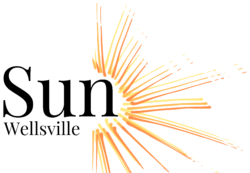Belmont NY Wildlife Rehabilitator has cared for young woodchuck since tragedy struck
By Andrew Harris
The woodchuck is a common sight in the Western New York Wilds. Sadly many times we see them on the road after being hit by a car. That is where Walter’s story starts.
A kind soul earlier this year came across one of these sad scenes, a fatal ending for a woodchuck. But something caught the eye of the passerby: A baby woodchuck nearly glued to the roadside next to his mother. He was exhausted, overheated, and you would think grief stricken at his mother’s death.

Meet Walter the Woodchuck
Enter Madison Reed, who accepted Walter into her wildlife rehabilitation program. At first he needed careful syringe feeding and lots of TLC from caregivers. It didn’t take long for his dinner preferences to change!!
Bananas and baby foods were some of his first, and still favorite solid foods. Weeks later Walter is eating a full diet of fruits and veggies(many thanks to Giant Food Mart!!)


Madison says, “I would love to just keep him forever!!” But that isn’t the role of a licensed wildlife rehabilitator. As quickly as Walter has grown, the time for his release back into the wild is approaching.
To prepare for this big day, Walter gets more and more time in his “pre-release enclosure,” to get acclimated to the real world. After a few more weeks, he will be released in a local habitat which will afford him the best chance at long-term survival.
Walter’s life hasn’t been perfect but he did get a second chance from “Life on the Wildside.” If you find some inspiration from Walters life and rescue, consider helping Madison and her crew out with expenses.
Supporting Life on the Wildside is easy:

Send $5…..$25…… what you can spare to help with Walter’s expenses, and the next wayward woodchuck that needs a hand.
Venmo: https://venmo.com/code?user_id=3912081329882586682…
PayPal: https://www.paypal.com/donate/…
About Life on the Wildside
A nonprofit 501c3 dedicated to the rehabilitation of our orphaned and injured wildlife. We specialize in small mammals. We are not able to take bats, raccoons, or skunks. Currently, we do not intake birds or turtles. We can connect you to those that can.






